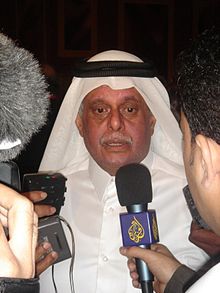Former Qatari Oil Minister campaigning for 2.5 MMBOPD cut

Qatar’s former oil minister, Abdullah al-Attiyah, said he is concerned about the continued crude oil supply glut. He is talking to OPEC and non-OPEC producers about making cuts before oversupply becomes unmanageable “like a cancer,” reports Reuters.
Attiyah, who served as Qatar’s oil minister from 1992 to 2011, said deals last week announced in Doha for a production freeze among OPEC and non-OPEC producers would not be enough.
“If they want to balance the market the solution will be easy. Don’t go slow. If you do, then every time the market will create a glut. Cut 2.5 million barrels and then you will balance the market in a few years,” said the former minister.
“I will ask every producer, do you want quantity or price? They say they want a reasonable price but to reach that there has to be sacrifice. If you do not sacrifice, the other will not sacrifice.
“The oversupply has grown from 1.7 million barrels per day to 3 million barrels today. I am very worried about oversupply. It is like a cancer. If you did not deal with it quickly, it would spread.”
Saudi oil minister says no chance for cuts
Attiyah spoke before Saudi Oil Minister Ali al-Naimi this week in Houston at an oil and gas conference, where his Saudi counterpart said “There is no sense in wasting our time seeking production cuts.”
Naimi’s pessimism rose from a doubt that other producers would join Saudi Arabia in making production cuts, a scenario it has experienced before. “[Production cuts are] not going to happen because not many countries are going to deliver even if they say they will cut production – they will not deliver,” he said. “So there is no sense in wasting our time seeking production cuts.”
Saudi Arabia, OPEC’s defacto leader, has continued to drive a policy of higher production despite pleas from less wealthy members like Venezuela to cut production and raise prices. Comments from OPEC Secretary General Abdalla Salem el-Badri suggested the group is unsure of how to balance the addition of shale from the U.S. with its role in the markets.
“I don’t know how we are going to live together,” Badri said.
The speed at which U.S. shale producers can react to changes in prices is new for the group. “Any increase in price, shale will come immediately and cover any reduction,” OPEC’s secretary general said.







